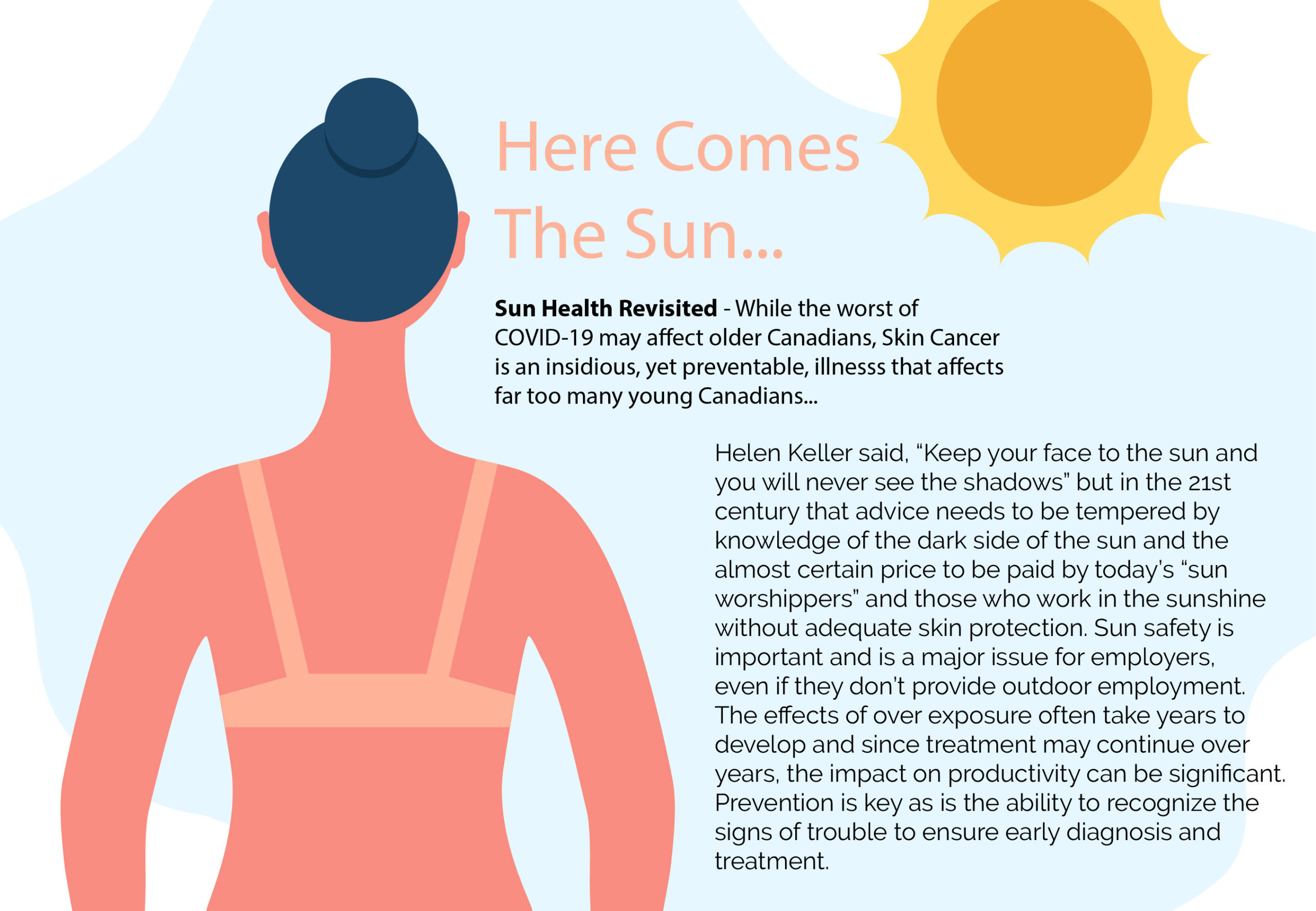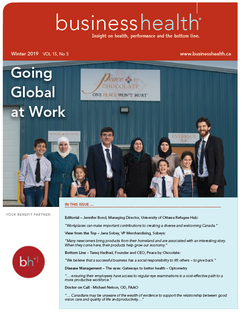



About businesshealth®
Upcoming Symposiums
"While the leaders of the world meet in Paris and craft sweeping policy that affects the entire planet, let's remember that the most important changes usually happen close to home."
bh Quotes (vol. 15-2)
Melanoma is the most common cancer for Canadians aged 15-49 and will, thus, impact many employees...
bh Facts (vol. 15-3)
Our Partners









